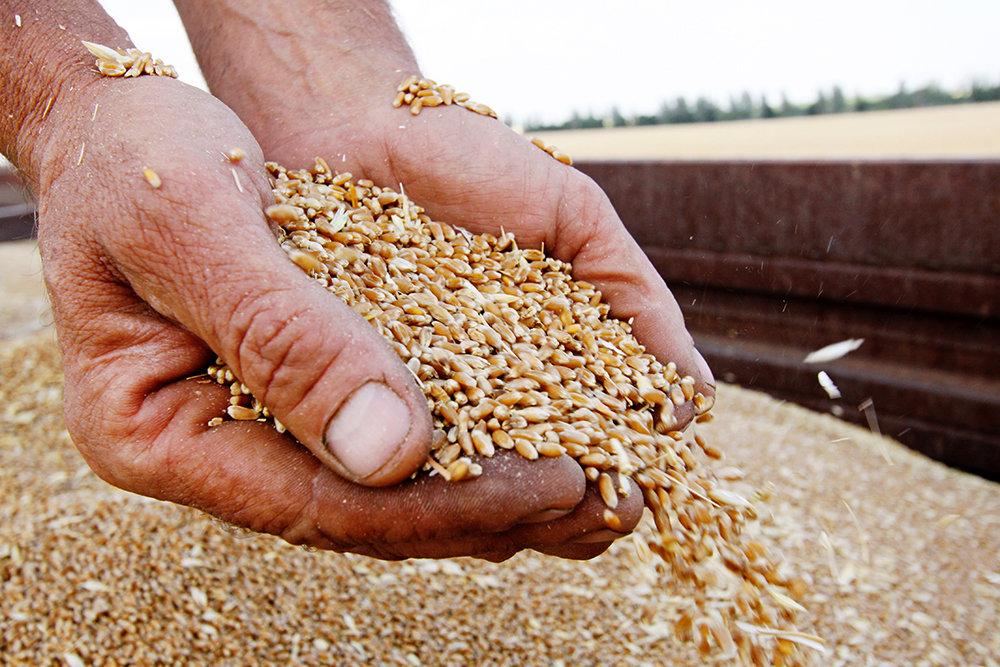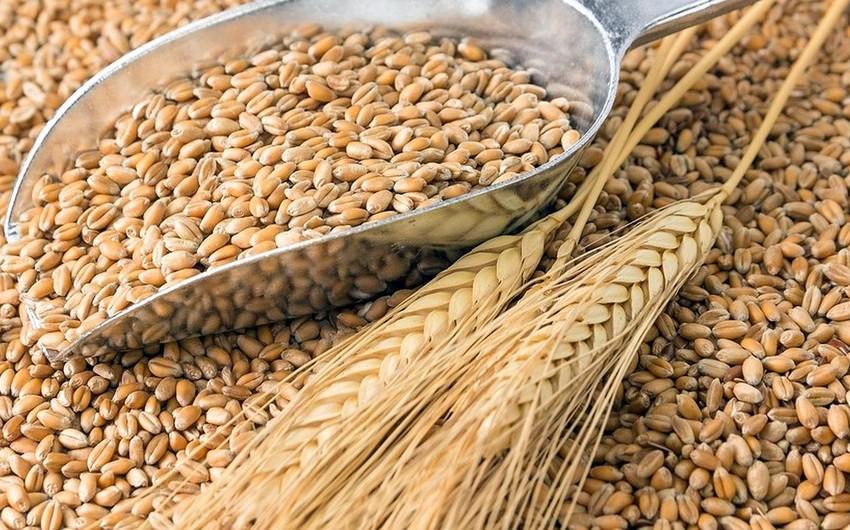Istanbul Treaty launches "grain corridor" Azerbaijan increases subsidies for grain growers
The global grain crisis, which has intensified since the beginning of the war between Russia and Ukraine, is being gradually overcome. An agreement on the creation of special corridors for the export of wheat and other foodstuffs through the ports of the Black Sea has been recently signed in Türkiye’s Istanbul city through the active support of Ankara and the UN.
The resumption of supplies of Ukrainian grain, as well as good forecasts for the wheat harvest in Russia and the expansion of its exports should help meet demand in the region and have an indirect effect on reducing the cost of grain imports for Azerbaijan too. Azerbaijan is intensively taking measures for grain self-sufficiency. According to Azerbaijani President Ilham Aliyev’s decree, the domestic grain-growing farms supplying their products to the State Reserves Agency will be provided with five-year subsidies from 2023.
As is known, the most difficult negotiations, aimed at creating a "grain corridor" from Ukraine, which is in a partial transport blockade, continued at Türkiye’s initiative over the past two months. Ankara, through the support of UN and EU, negotiated with Kyiv and Moscow on a scheme for the Ukrainian and foreign dry cargo ships with grain accompanied by the Turkish ships to pass from the Ukrainian ports to the neutral waters of the Black Sea. The success in the negotiations was supposed to ensure grain supply by ships to the countries of the Black Sea region and further to the countries of the Middle East and North Africa, mainly affected by the consequences of the conflict in Ukraine and the next round of the food crisis caused by it. Great progress was made during the Russian-Ukrainian talks through the support of Türkiye and UN last week. The participants agreed to establish a coordination centre in Istanbul and reached an agreement on joint control of grain cargo in ports.
"According to the preliminary plan for the export of Ukrainian grain, grain will be exported through three Ukrainian ports, namely, Odesa, Yuzhne and Chornomorsk and will be controlled by a group under the UN auspices. The number of port points open for grain trade may be expanded in the future, taking into account the observance of all the recommendations of the Ukrainian naval and land armed forces," member of the Ukrainian delegation at the negotiations on the "grain corridor", Ukrainian MP Rustem Umerov, noted.

"The US stands for signing a final agreement on the settlement of the grain issue between Russia and Ukraine. We welcome the hard work of the UN secretary general, our Turkish allies," US Department of State spokesman Ned Price said, commenting on the meeting of Russian and Ukrainian representatives held in Istanbul recently.
The final negotiations between Russian and Ukrainian representatives in the presence of UN Secretary-General Antonio Guterres, who arrived in Istanbul, and Turkish President Recep Tayyip Erdogan, were held on July 22 evening at the Dolmabahce palace. The final document entitled "Initiative for the safe transportation of grain and food from Ukrainian ports" was signed there. Moreover, the desired agreement on "grain corridors" was concluded indirectly among Ukraine, Türkiye and UN on the one hand, and Russia, Türkiye and UN on the other hand, rather than directly between Kyiv and Moscow. Proceeding from the final document, Ukraine fully controlled the ports of Odesa, Yuzhne and Chornomorsk and continues controlling them. The movement of other ships, except for those that should export grain, food and fertilizers, is not envisaged in these ports.
According to the Turkish media, citing official UN sources, the agreement contains three basic points. Firstly, the parties abandoned the idea of completely clearing wide corridors from mines as this would take a lot of time while narrow fairways cleared of mines will be created in ports for the safe passage of Ukrainian ships. Secondly, the joint coordination centre which is being created with headquarters in Istanbul will inspect dry cargo and grain carriers heading to Ukrainian ports to exclude the use of these ships for the supply of weapons and other equipment or dual-use goods not included in the agreement. The next part of the agreement is devoted to the security guarantees that Moscow and Kyiv will provide to sea vessels sailing through the "grain corridors". The reached agreements exclude shelling and other aggressive actions against such ships, while the safety of the ships will be monitored from the centre in Istanbul every minute in real time.
The final agreement also outlined the schedule for the creation of the "grain corridor". The establishment of a coordination centre in Istanbul and the process of clearing the fairways of ports of mines may take several weeks. Afterwards, a full-scale shipment of grain may begin approximately in mid-August. The term of the contract will be 120 days, with the possibility of extension without a new negotiation process. According to the UN representatives, a four-month period is enough for the export of about 25 million tons of grain from Ukrainian ports.
Thus, the agreements on "grain corridors", resuming the supply of Ukrainian grain to the markets of the countries of the Black and Mediterranean Seas, will be the first step towards overcoming the most acute food crisis.
There are also prospects for resolving another problem that has been detrimental to regional trade in food. Proceeding from the decisions of the Russian government, the restrictions on exports and quotas were made, as well as customs duties on the export of fertilizers, grains, flour, cereals, oilseeds, animal feed, amino acids and other types of raw materials were increased last year and this year. These decisions were aimed at ensuring Russia's food security, maintaining stable domestic prices for the corresponding products. According to the Western experts, restrictions on food exports played the role of an effective political tool used by Moscow in the current difficult geopolitical situation. The information has recently gone viral that Russia intends to partly soften its export policy for grains and legumes due to good winter crops and positive forecasts for the autumn harvest. Thus, according to the Russian Ministry of Agriculture, more than 30 million tons of grain were harvested by July 21 (25.3 million tons of them accounted for wheat), the yield is much higher than last year - 41.7 centners per hectare compared to 33.3 centners per hectare. In general, 130 million tons, including 87 million tons of wheat, are expected to be harvested in late 2022. In this regard, the International Grains Council in its July report greatly increased the forecast for wheat exports from Russia in the current agricultural year up to 37.6 million tons. According to the International Grains Council, the total export of Russian grain and legumes will reach 45.7 million tons, which is also higher than last year's figures.

Neighboring Kazakhstan also expects a good harvest. It also made decisions to increase exports to the EU countries as well. Thus, more than three million tons of wheat and about 800,000 tons of flour were exported from Kazakhstan from the beginning of the year to mid-July, which, respectively, is by one and a half times and by 35 per cent more than last year's figures.
Of course, the increase in the export of Ukrainian, Russian and Kazakh grain is an extremely important factor contributing to a decrease in the demand on the grain exchanges in the region and, ultimately, a decrease in wholesale prices.
This is also very important for Azerbaijan as the country has to import about 40 per cent of durum wheat from abroad. So, about 1.1 million tons of wheat were supplied to the country last year, and about 90 per cent of all imports accounted for the share of Russian producers. Such dependence on the Russian market entails big risks, so the Azerbaijani government has taken a number of steps to make some changes and sharply increase purchases in Kazakhstan. Perhaps, when the work of Ukrainian ports is restored, Azerbaijani forwarders will also be able to purchase grain and flour here.
In the short term, along with the diversification of imports, the Azerbaijani government will also take steps to increase grain reserves. In this regard, the activity of the newly created State Reserves Agency has intensified in Azerbaijan. The structure of food reserves is being formed. From now on, some grain which is imported and produced in the country is reserved at the State Reserves Agency's elevators both in case of force majeure and to regulate prices in the domestic market. President of Azerbaijan Ilham Aliyev has recently signed a decree on a number of measures to increase the level of self-sufficiency in wheat. According to the decree, at the initial stage as a pilot project starting from 2023 and for a period of five years, subsidies will be provided to grain-sowing farms using modern irrigation systems and which have concluded the corresponding agreements for the supply of grain to the State Reserves Agency and flour mills in accordance with the contract concluded with the Ministry of Agriculture. The purpose of this decree is to stimulate, through subsidies, big and medium-sized specialised grain-growing farms and agricultural parks to increase the production of high-yielding durum wheat varieties, as well as to improve the mechanisms for issuing loans on favourable terms and under state guarantees for the agrotechnical re-equipment of farms, the purchase of modern irrigation systems, etc. Such high technology farms in the Aghdam, Aghjabadi, Barda, Saatli, Sabirabad and Samukh districts have been distinguished this year. Despite rainy and cold weather in spring and summer 2022, which shifted the winter crop harvesting schedule by more than two weeks, the average yield in these districts amounted to 40-50 centners per hectare.
While expanding such experience, it is possible to achieve an increase in the average yield from current 32-34 centners per hectare to 40-45 centners and thereby obtain a bigger volume of wheat per unit area, which would help reduce production costs and increase profitability. Accordingly, it is planned to meet over 80 per cent of the country's needs for wheat through domestic production, including arable land in the Karabakh and East Zangazur economic regions in the medium term.








